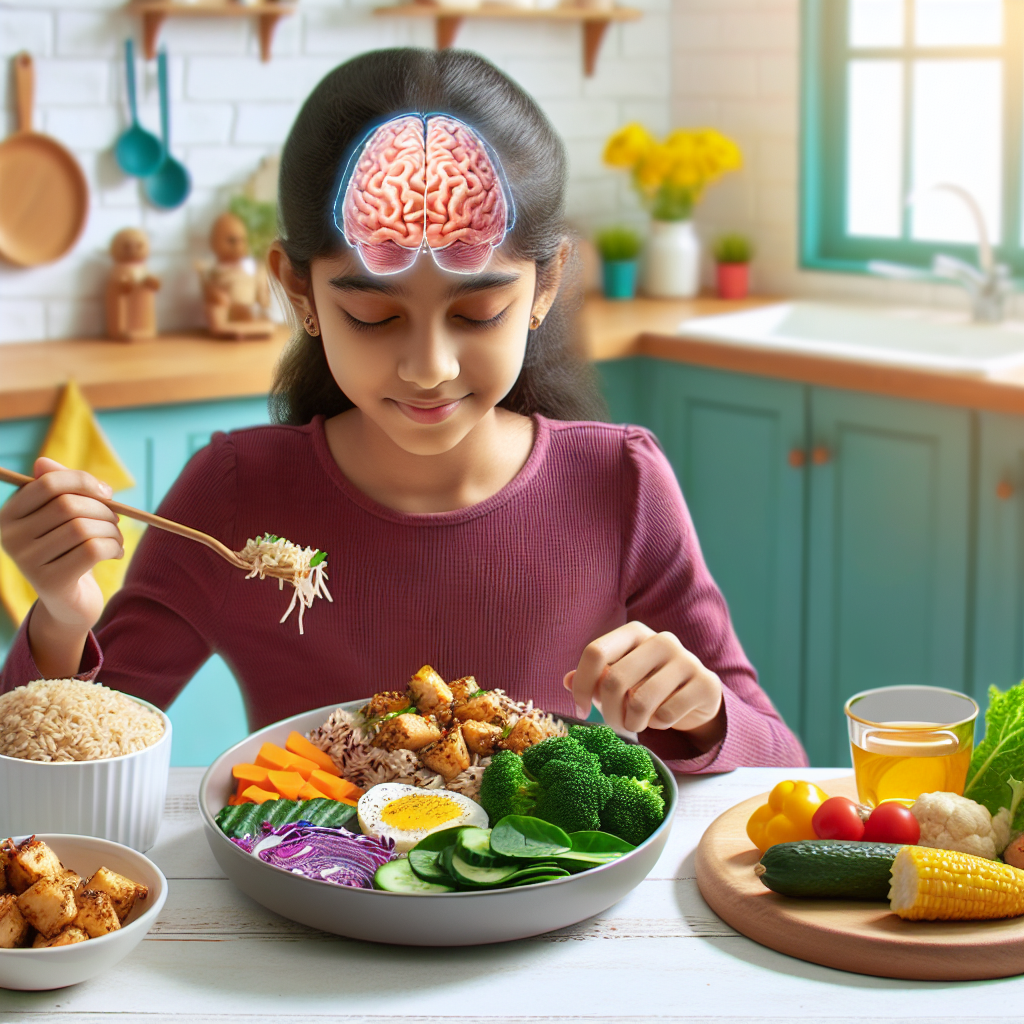Proper nutrition is a cornerstone for the healthy development of children, particularly for their growing brains. From the womb through adolescence, the nutrients that children consume can have a profound impact on their cognitive functions and overall brain health. In this comprehensive exploration, we’ll delve into the ways nutrition shapes brain development and cognition and how parents and caregivers can support the best dietary choices for their children.
The Building Blocks of Brain Development
During the early stages of life, the brain develops at a rapid pace. This growth necessitates a steady supply of specific nutrients to form the neural structures that will support lifelong learning, memory, and emotional regulation. Omega-3 fatty acids, for example, are crucial for the development of the brain’s structure, particularly DHA (docosahexaenoic acid), which is a primary structural component of the cerebral cortex. The article on Protective Effects of Omega-3 Fatty Acids Against Neurodegeneration further discusses the importance of these fatty acids in maintaining brain health.
Iron is another nutrient indispensable for cognitive development. It plays a vital role in the production of myelin, the sheath that insulates nerve fibers and speeds up the transmission of electrical signals in the brain. A deficiency in iron during critical growth periods can lead to cognitive and motor development delays and behavioral disturbances.
Choline is essential for brain development and the creation of neurotransmitters that facilitate brain communication. It’s particularly important for memory and learning processes. The body can synthesize some choline, but dietary intake is necessary to meet the body’s needs, especially in young children.
Nutrition’s Role in Cognitive Function
The brain is an energy-intensive organ, and glucose is its primary fuel source. Complex carbohydrates from whole grains, fruits, and vegetables provide a steady glucose supply, which is crucial for maintaining cognitive functions such as attention, memory, and problem-solving abilities. Fluctuations in blood sugar levels can affect these cognitive processes, which emphasizes the importance of a balanced diet in children’s diets.
In addition to energy, the brain requires certain nutrients to synthesize neurotransmitters, the chemical messengers that relay signals between brain cells. For instance, the amino acid tryptophan, found in foods like turkey and cheese, is a precursor to serotonin, a neurotransmitter that affects mood and sleep. Meanwhile, tyrosine, found in dairy products, meats, and nuts, is necessary for the production of dopamine, which influences motivation and reward.
Hydration and Brain Function
Hydration also plays a vital role in cognitive function. Water is a major component of the brain, and even mild dehydration can impair concentration, memory, and mood in children. Ensuring adequate fluid intake is essential for optimal brain function, as detailed in the article on Understanding the Neurological Benefits of Hydration.
Strategies for Enhancing Brain Health Through Diet
Parents and caregivers can take proactive steps to ensure that children receive the nutrients necessary for brain development. One key strategy is to include a variety of nutrient-rich foods in their diets, such as:
- Fatty fish: A great source of omega-3 fatty acids, vital for brain development and function.
- Eggs: Contain choline, which is essential for brain development and function.
- Nuts and seeds: Provide omega-3 fatty acids and antioxidants, which can protect the brain and enhance cognitive function.
- Whole grains: Offer a steady source of energy for the brain.
- Berries: Rich in antioxidants and compounds that may improve brain function.
- Leafy greens: High in folate, which is important for brain function.
For more comprehensive strategies for enhancing brain health through diet, the article on Strategies for Enhancing Brain Health Through Diet provides valuable insights.
The Impact of Micronutrients
Micronutrients, though needed in smaller amounts, are just as critical for proper brain function. Vitamins such as B6, B12, and folate are involved in the synthesis of neurotransmitters and the maintenance of the nervous system. Minerals like zinc and iodine are also vital, with zinc playing a role in neurotransmitter function and iodine being essential for thyroid hormone production, which affects brain development.
External High-Quality Resources
Parents interested in learning more about the role of nutrition in children’s brain development can find niche resources that offer in-depth information and evidence-based guidelines. For example:
- Harvard School of Public Health – The Nutrition Source provides evidence-based guidance on nutrition and its impact on health, including children’s cognitive development.
- The National Institute of Child Health and Human Development offers resources on child development, including the impact of nutrition on the brain.
- The Child & Brain Development Program from the Encyclopedia on Early Childhood Development offers comprehensive research and insights into brain development in the early years.
Additional Reading on Avix Health
For further exploration of how lifestyle factors influence brain health, Avix Health has a wealth of information. Readers may find these additional articles particularly relevant:
- Learn about the neurological development benefits of music in The Effects of Music on Neurological Development and Brain Health.
- Discover how exercise impacts brain structure in How Physical Fitness Influences Brain Structure and Cognitive Function.
- Understand the relationship between diet, exercise, and brain health in The Relationship Between Exercise, Diet, and Brain Health.
Proper nutrition is crucial for the developing brain, and the choices we make in our children’s diets can have long-lasting effects on their cognitive abilities and overall brain health. By utilizing the knowledge and resources available, caregivers can support the nutritional needs of their children, laying the foundation for a lifetime of learning and well-being.



